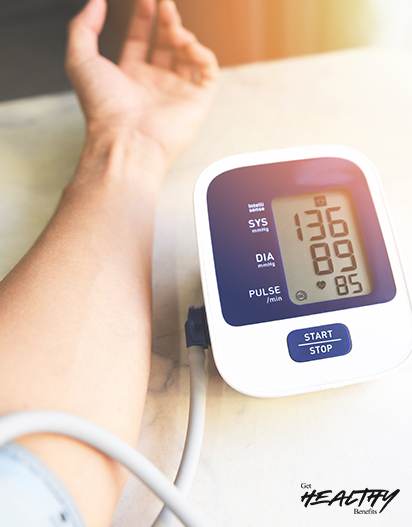Is Milk Good for Diabetics?
Diabetes is a life-threatening disease. It has been affecting and taking the lives of millions all around the world. Different things can characterize diabetes. The high levels of blood sugar, insulin production, and major concerns. The body does not produce enough insulin or the cells do not respond to the insulin produced is a concern that has been faced by many diabetics. Managing diabetics involves a lot of changes including a healthy diet and a healthy lifestyle.
One question that gets people thinking about Diabetics is whether milk is good for them. Is milk good for diabetics? This is a concerning question. Milk is a staple in many people's diets. It has a strong sugar content, and its impact on blood sugar levels is a hot topic for diabetics. In this article, we will learn if milk is good for diabetics, its nutrient profile, its GI, and its glycemic index, and research.
Nutrient Profile
Milk is a dense source of nutrients. It contains calcium, protein, vitamins A and B and potassium. These nutrients are essential for maintaining the overall health and well-being of a diabetic. However, milk contains sugar in the form of lactose. This lactose can help increase blood sugar levels.
One cup of whole milk contains approximately 12 grams of sugar, while one cup of skim milk contains around 11 grams of sugar. People must choose the proper milk to manage their blood sugar levels. The intake of one cup of a different dairy can cause a spike in their blood sugar levels.
Milk is often considered a nutritious beverage due to its rich nutrient profile. Milk does include essential vitamins and minerals. However, for individuals with diabetes, whether milk suits their health can be a little complex.
Milk contains carbohydrates in the form of lactose. It has a huge impact on blood sugar levels. Milk has a relatively low glycemic index compared to other sources of carbohydrates. This shows that carbohydrates in milk are absorbed slowly, leading to a gradual increase in blood sugar levels rather than a sudden spike.
Journal Nutrients in 2017 found that dairy products, including milk, may have a neutral to beneficial effect on blood sugar control in people with type 2 diabetes.
Overall, milk can be included in a balanced diet for individuals with diabetes. Portion control and monitoring blood sugar levels are key factors to be careful about.
Nutrient chart
Here is a breakdown of the nutrients in one cup of whole milk(3.25% milkfat):
Calories: 149
Protein: 8 grams
Fat: 8 grams
Carbohydrates: 12 grams
Fiber: 0 grams
Sugar: 12 grams
It is important to note that the milk nutrients might vary slightly depending on the type of milk you are using.
Benefits of Milk
Even though Milk has great sugar content, this doesn't stop it. It also has numerous other benefits. Milk is very healthy. The following factors show the other benefits of milk:
Rich source of calcium for stronger bones and teeth.
High-quality protein for muscle growth and repair.
Vitamin D for bone health and the immune system.
Potassium for heart health and blood pressure regulation.
Calcium
Calcium is an essential mineral. It plays a crucial role in maintaining strong bones and teeth. It also supports proper muscle function and nerve transmission. One of the best sources of calcium is milk. It contains approximately 300 mg of calcium per cup, making it a great choice for diabetics who are looking to increase their calcium intake and support their overall bone health.
Additionally, milk also contains very important nutrients such as Vitamin D. It helps the body absorb calcium more effectively. It is recommended that adults consume around 1000 mg of calcium per day.
Protein
Milk is a rich source of protein. In one cup of milk, there are 8 grams of proteins. The protein in milk is high quality and contains all the essential amino acids that the body requires. There are two types of proteins found in milk. Casein makes up 80% of the total protein content. These proteins are easily digestible and sustain amino acid release into the bloodstream. It is also a popular choice for post-workout recovery as the low milk gi.
In addition to protein, milk also contains important nutrients such as calcium, vitamin D, and potassium. Milk is a very well-rounded option for maintaining our health and wellness.
Vitamin D
Vitamin D is an essential nutrient. It plays a critical role in maintaining strong bones and overall health. One common source of vitamin D. It is often fortified as an important vitamin. The mixing of milk with Vitamin D helps and shows that individuals can meet their daily requirements.
A study published in the American Journal of Clinical Nutrition in 2011 found that consuming low-fat dairy products such as milk was associated with a reduced risk of developing type 2 diabetes.
Many people do not get enough sunlight exposure to produce sufficient vitamin D in their bodies. Drinking milk with Vitamin D can help prevent conditions such as rickets in children and osteoporosis in adults. It is important to include Vitamin-rich food like milk in your diet to support the optimal health and well-being of the diabetic.
Potassium
Potassium is an essential mineral. For it plays an accurate role in maintaining proper body functions. Muscle contractions, nerve signals, and regulating fluid balance are potassium functions. Milk is a good source of potassium. 8 ounces of Glass contains around 350 mg of this mineral. Potassium in milk helps support healthy blood pressure levels. It also reduces the risk of stroke and heart disease.
Additionally, potassium works in conjunction with other nutrients. Calcium and magnesium are nutrients that promote health.
Conclusion
Milk can be a beneficial addition to the diabetic diet. Thanks to its nutrient-rich profile and low glycemic index. Milk contains sugar, but its overall health benefits outweigh the potential impact on blood sugar levels. Also, moderation of any food is key when incorporating milk into a diabetic diet. Creating a balanced meal plan that meets individual needs is important. A diabetic should have a dietician to look after or professional healthcare.to drink milk gi at low is very beneficial.
Ultimately, milk can be enjoyed in various forms. Such as smoothies, cereal, or a standalone beverage. People with diabetes should always have a healthy diet. So go ahead and pour yourself a glass of milk, it may just be the perfect combination for your diabetes-friendly meal plan. Now, we can surely understand that milk is good for diabetics.
Share this post
Older Posts
Is Basmati Rice Good for Diabetics?
Subscribe to new posts











